Politics
Who is Shabana Mahmood? UK’s first-ever Pakistani-origin, Muslim home secretary
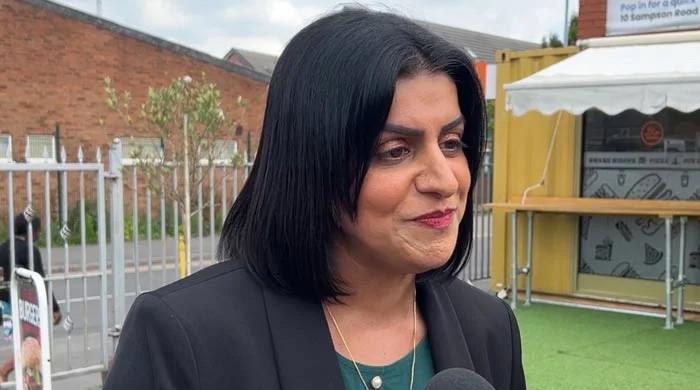
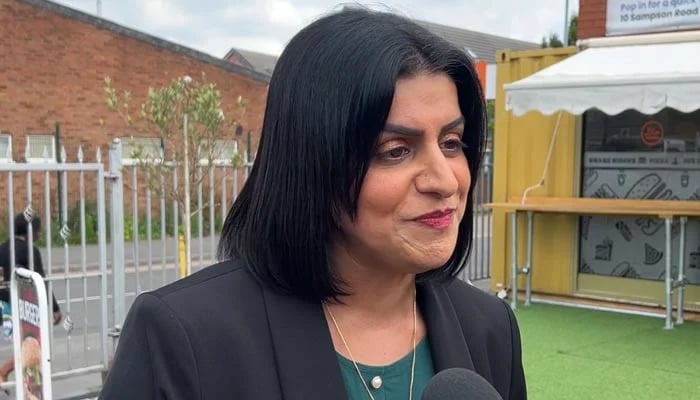
LONDON: UK Prime Minister Keir Starmer has named Kashmiri and Pakistani-origin Shabana Mahmood as the new home secretary – this is for the first time in the UK’s history that anyone from a Pakistani and Muslim background has risen to the powerful position of the head of the Home Office.
The announcement came in the wake of Angela Rayner’s resignation as Deputy Prime Minister over her flat’s scandal. The Home Office oversees immigration, policing, and national security administration.
“It is the honour of my life to serve as Home Secretary. The first responsibility of the government is the safety of its citizens. Every day in this job, I will be devoted to that purpose,” Mahmood said.
Mahmood was born to Kashmiri-Pakistani parents, Zubaida and Mahmood Ahmed, in Birmingham in 1980. Her parents are originally from Mirpur in Azad Kashmir, but decades ago moved to Jhelum’s Bohriyan village near Ludhar. Shabana spent her early years in Saudi Arabia before returning to the UK. She pursued her law degree at Lincoln College, Oxford, and qualified as a barrister specialising in professional indemnity cases.
She entered politics in 2010. She was elected as an MP from Birmingham Ladywood, marking a turning point in her political career. She was one of the UK’s first female Muslim MPs. Since then, she has held several key roles, including Shadow Financial Secretary to the Treasury and Shadow Minister for Prisons.
Last year, she spoke to Geo News at length on how she has faced harassment and intimidation from members of the local Pakistani community. She is now facing the worst kind of racist and Islamophobic attacks from the far-right extremists after her appointment as the Home Secretary.
After winning the 2024 election, she was appointed as justice secretary and lord chancellor. She introduced several schemes to manage the overcrowded prisons and to address the court backlogs. Last week, she introduced major legislation in Parliament aimed at reforming the prison system in the UK.
Home Secretary Mahmood is set to take on one of the toughest briefs in government as pressure mounts over record Channel crossings, asylum hotels, and migration.
As lord chancellor and justice secretary over the past year, Mahmood has been tasked with tackling the jail overcrowding crisis and has just introduced major legislation to Parliament to overhaul the prison system earlier this week.
The courts’ backlog has also been a key focus of her brief, but the daughter of immigrants, of Kashmiri origin, has also been drawn into immigration policy that will form much of her new day job.
Mahmood backed Sir Keir Starmer after he said that Britain risked becoming an “island of strangers” in May, although she avoided using the term.
Asked whether she would repeat the Prime Minister’s language, she said: “I agree with the Prime Minister that without curbs on migration, without making sure that we have strong rules that everyone follows, and that we have a pace of immigration that allows for integration into our country, we do risk becoming a nation of people estranged from one another.
“And what he has described is something that I absolutely believe in, and which are the values of the Labour Party, which is a desire to see this country as a nation of neighbours.”
Earlier this summer, Mahmood also said the European Convention on Human Rights must be reformed to win back public confidence across the continent.
On Tuesday, she further told the Lords Constitution Committee that it is “perfectly fine” for ministers to question the UK’s interpretation of upholding the treaty, adding that European colleagues view the UK as being more on the “maximalist end of the spectrum”.
The former barrister will now be in charge of proposals to tighten the use of Article 8, the right to family and private life, of the ECHR in immigration cases, which are expected to be brought this autumn.
As justice secretary, she also proposed a change in the law for foreign criminals to be deported immediately when they receive a custodial sentence, at a time the Home Office has been working to increase the number of returns of migrants with no legal right to be in the UK.
Announcing the plan last month, she said: “If you abuse our hospitality and break our laws, we will send you packing. Deportations are up under this Government, and with this new law, they will happen earlier than ever before.”
Her appointment has been welcomed by the founder of Blue Labour, Lord Glasman, who told Politico the move was “fantastic”.
“She’s now clearly the leader of our part of the party.”
Mahmood told Geo News last year that in her 14 years of public life as a Pakistani-Kashmiri origin Muslim woman in the UK, she has encountered intimidation and harassment, emphasising that being a Muslim woman in public life is challenging.
Mahmood explained that she had not previously discussed such harassment because she did not want people, “especially our sisters, daughters, to perceive politics negatively and be deterred by the challenges of intimidation and harassment”.
In her constituency in Birmingham, which she won around 15 years ago, Mahmood, a leading figure in Starmer’s closest circle, faced a lot of misinformation, fake news, and misogynistic attacks from a group of men who were vying to oust her in this election.
In several parts of the constituency, her posters were ripped off. She had been accused of the things she has not done, and for that purpose social media sites such as TikTok and Instagram have been used to direct hate at her.
She expressed that being the sole Muslim woman in a key role in parliament is a motivating factor.
Responding to a query about the Palestine issue and the ongoing war in Gaza, she said innocent children are being killed, cruelty is rampant, and millions of people are deeply saddened and affected by it.
She stated that the Labour Party believes in a two-state solution and that is the only way to end the Palestine-Israel conflict.
Politics
Deal was closer than ever to end Russia’s invasion of Ukraine: President Trump says
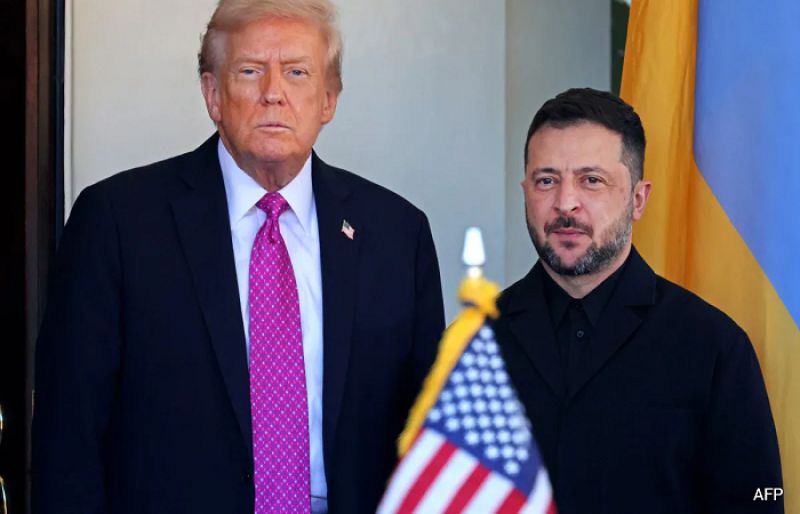

US President Donald Trump said that a deal was closer than ever to end Russia’s invasion of Ukraine but reported no apparent breakthrough on the flashpoint issue of territory after new talks with the warring countries’ leaders.
Trump, who had promised a peace deal on day one of his nearly year-old presidency, said it would become clear within weeks whether it was possible to end the war that has killed tens of thousands of people since February 2022.
In a pre-New Year’s diplomatic sprint, Trump brought Ukrainian President Volodymyr Zelensky to Florida, where the two met with top aides over lunch, a day after Russia unleashed major new attacks on residential areas of the capital Kyiv.
Much like when Zelensky last met Trump in October, Russian President Vladimir Putin also spoke shortly beforehand by telephone with the US leader, who immediately insisted that Moscow was “serious” about peace despite the assault.
“I really believe we’re, Mr President, probably closer than — far closer than — ever before with both parties,” Trump said with Zelensky at his side in the tea room of his Mar-a-Lago estate.
“Everybody wants it ended,” Trump said.
After their talks, Zelensky and Trump spoke jointly by telephone with key European leaders, who have been particularly alarmed about any decisions that would embolden Russia.
Zelensky said that he and European leaders could return jointly for talks with Trump in Washington in January.
The Ukrainian president stayed studiously polite throughout his visit, mindful of his disastrous White House meeting on February 28 where Trump and Vice President JD Vance publicly berated him for not being sufficiently grateful.
Territory impasse
Trump, for all his stated optimism, gave few details on the progress he cited, instead digressing into familiar grievances about his predecessor Joe Biden, who committed billions of dollars for Ukraine’s defense, and speaking of his own friendly rapport with Putin.
Trump acknowledged continued disagreement between Kyiv and Moscow on territory. The current plan, revised after weeks of intense US-Ukrainian negotiations, would stop the war at the current frontlines in the eastern Donbas region and set up a demilitarized area, while Russia has long demanded territorial concessions.
“It’s unresolved, but it’s getting a lot closer. That’s a very tough issue, but one that I think will get resolved,” Trump said.
Trump offered to address the Ukrainian parliament to promote the plan — an idea, however unlikely, that Zelensky was quick to welcome.
Zelensky has voiced an openness to the revised US plan, marking Kyiv’s most explicit acknowledgement yet of possible territorial concessions, although Ukrainians voters would need to approve it in a referendum.
By contrast, Russia has shown no signs of compromise, as it sees hope in the grinding gains it has made over four years against tough Ukrainian defenses.
The Kremlin in its readout of talks between Putin and Trump called on Kyiv to make a “brave decision” and immediately withdraw troops from Donbas, casting European leaders as the impediment to peace.
“Russia and the United States share the same position which is that the Ukrainian and European proposal for a temporary ceasefire (…) would only prolong the conflict and lead to a resumption of hostilities,” the Kremlin’s diplomatic advisor Yuri Ushakov told reporters.
’90 percent’ agreed by Ukraine
Trump’s advisors have previously floated the idea of offering NATO-like security guarantees to Ukraine, meaning in theory that the alliance’s members would respond militarily if Russia attacks again.
Zelensky said that the peace framework laid out by Trump was “90 percent agreed” and that “US-Ukraine security guarantees: 100 percent agreed.”
Zelensky said the two sides were still finalizing a “prosperity plan” for Ukraine as well as the sequencing of the various actions.
Russia had adamantly rejected any entrance of the former Soviet republic into NATO.
In its latest assault with drones and missiles, Russia knocked out power and heating to hundreds of thousands of residents during freezing temperatures.
“If the authorities in Kyiv don’t want to settle this business peacefully, we’ll resolve all the problems before us by military means,” Putin said on Saturday.
Politics
Bangladesh’s student-led party allies with JI ahead of election
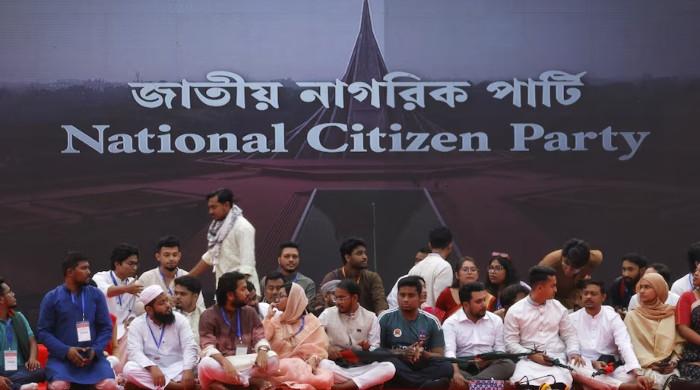
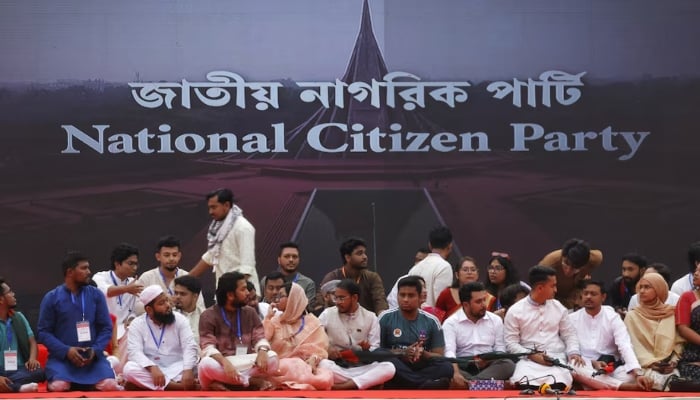
- NCP chief says final list of candidates to be announced on Monday.
- Tasnim Jara, several other leaders quit NCP in protest.
- Critics of NCP’s move say it undermined party’s founding ideals.
DHAKA: The student-led Bangladeshi party born out of the protest movement that toppled Prime Minister Sheikh Hasina has forged an electoral alliance with Jamaat-e-Islami ahead of February’s parliamentary election, stirring internal rifts.
Since last year’s uprising, the National Citizen Party (NCP) has cast itself as a centrist, reformist alternative to nepotism and two-party dominance, but as the election nears, it is struggling to turn street power into voter support.
NCP chief Nahid Islam said on Sunday the party had decided to enter into the alliance for greater unity, adding that the final list of candidates would be announced on Monday. Other NCP figures have described the alliance as a pragmatic step in a fragmented political landscape.
But the decision to join forces with JI has already prompted internal ructions.
Tasnim Jara, a doctor who left a career in Britain to join the NCP, becoming a leader in the party, resigned on Saturday and said she would contest the election as an independent candidate. Several other members have also quit.
BNP regains momentum
Critics of the NCP’s move said it undermined the party’s founding ideals.
“The moral support I had for the NCP will no longer exist due to this ideological mismatch,” said one university student, asking not to be named.
The partnership comes amid broader political realignments, with the Bangladesh Nationalist Party (BNP) — aligned with ailing former Prime Minister Khaleda Zia and effectively led by her son, acting chair Tarique Rahman — regaining momentum following Rahman’s return after nearly 17 years in exile.
The February 12 election will be held under an interim administration headed by Nobel laureate Muhammad Yunus, who took charge after Hasina’s ouster and is seen as crucial to restoring political stability after nearly two years of turmoil.
Politics
Row deepens over vanished river wave in Munich


A row over the disappearance of a famous river surfing wave in Munich escalated on Sunday as authorities removed a beam inserted over Christmas to recreate the attraction.
The Eisbach wave on a side branch of the Isar River had been a landmark in the Bavarian city since the 1980s but it vanished in October after annual cleanup work along the riverbed.
Activists had placed a beam in the water early on December 25 to partially recreate the wave, according to German media reports, and hung a banner above the water that read “Merry Christmas”.
But a spokesman for the Munich fire service told AFP the “installation was removed” on Sunday at the request of city authorities.
Activists have made several attempts to reinstate the wave in the city’s Englischer Garten park since October — only to see them reversed.
The local surfers’ association IGSM on Thursday posted a statement on its website saying it had abandoned its campaign to save the wave, accusing city authorities of dragging their feet.
The Eisbach wave was considered the largest and most consistent river wave in the heart of a major city and had become a tourist attraction in Bavaria’s state capital.
Franz Fasel, head of the IGSM, told AFP in July that 3,000 to 5,000 local surfers were using it.
Access to the wave was cut off for several months earlier this year after the death of a 33-year-old Munich woman who became trapped under the surface while surfing at night.
-
Sports1 week ago
Alabama turned Oklahoma’s College Football Playoff dream into a nightmare
-

 Entertainment1 week ago
Entertainment1 week agoRare look inside the secret LEGO Museum reveals the system behind a toy giant’s remarkable longevity
-
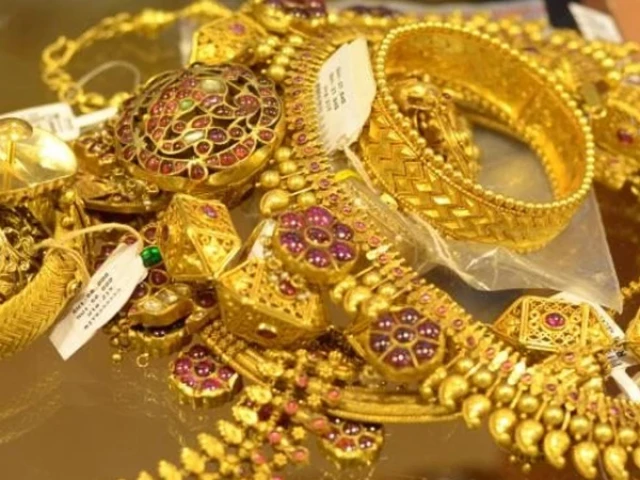
 Business1 week ago
Business1 week agoGold prices in Pakistan Today – December 20, 2025 | The Express Tribune
-

 Entertainment1 week ago
Entertainment1 week agoIndia drops Shubman Gill from T20 World Cup squad
-

 Tech1 week ago
Tech1 week agoWe Tried and Tested the Best Gifts for Plant Lovers With Our Own Green Thumbs
-

 Sports2 days ago
Sports2 days agoBrooks Koepka should face penalty if he rejoins PGA Tour, golf pundit says
-

 Sports1 week ago
Sports1 week agoPatriots vs. Ravens (Dec 21, 2025) Live Score – ESPN
-

 Politics1 week ago
Politics1 week agoUS intercepts oil tanker off Venezuelan coast, Reports






